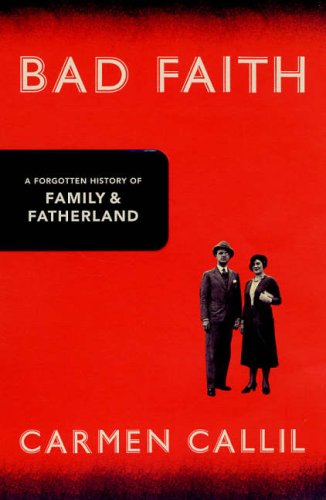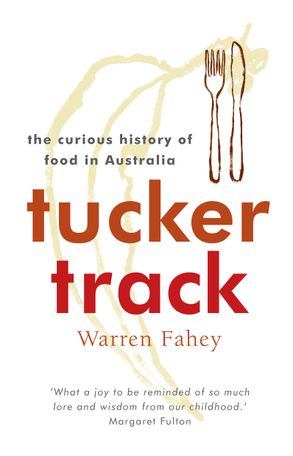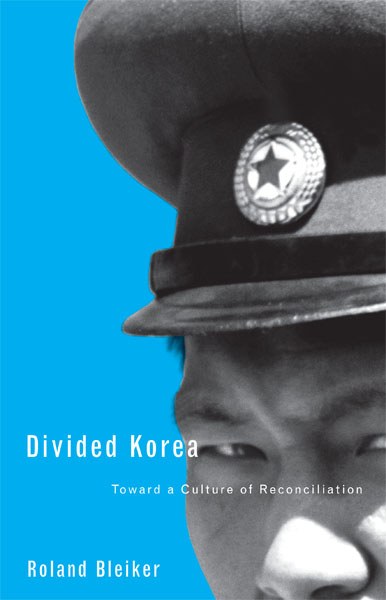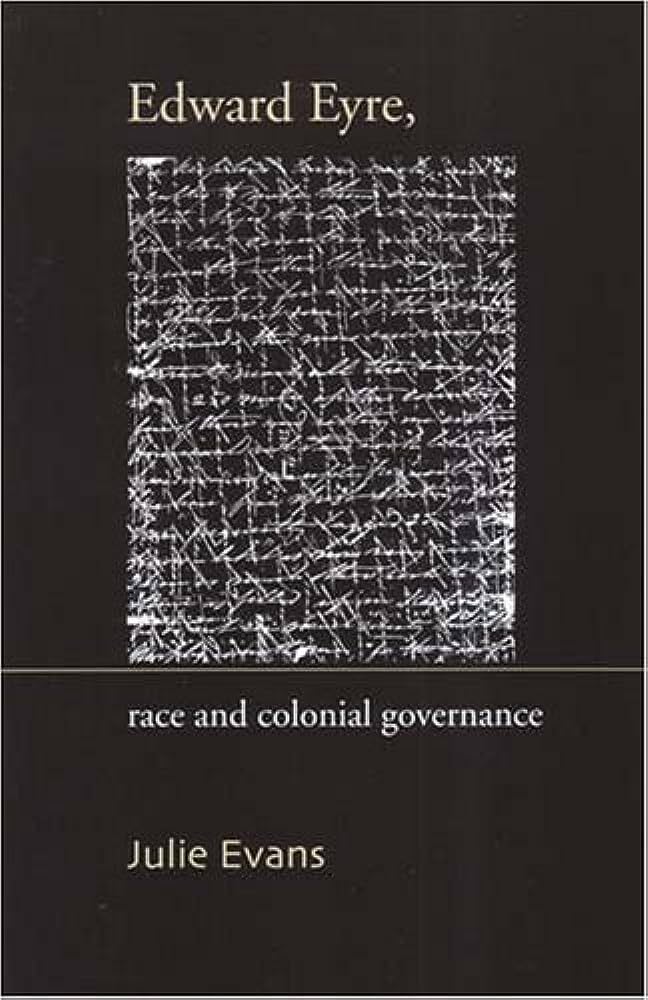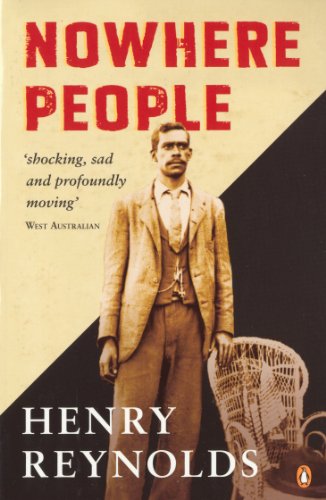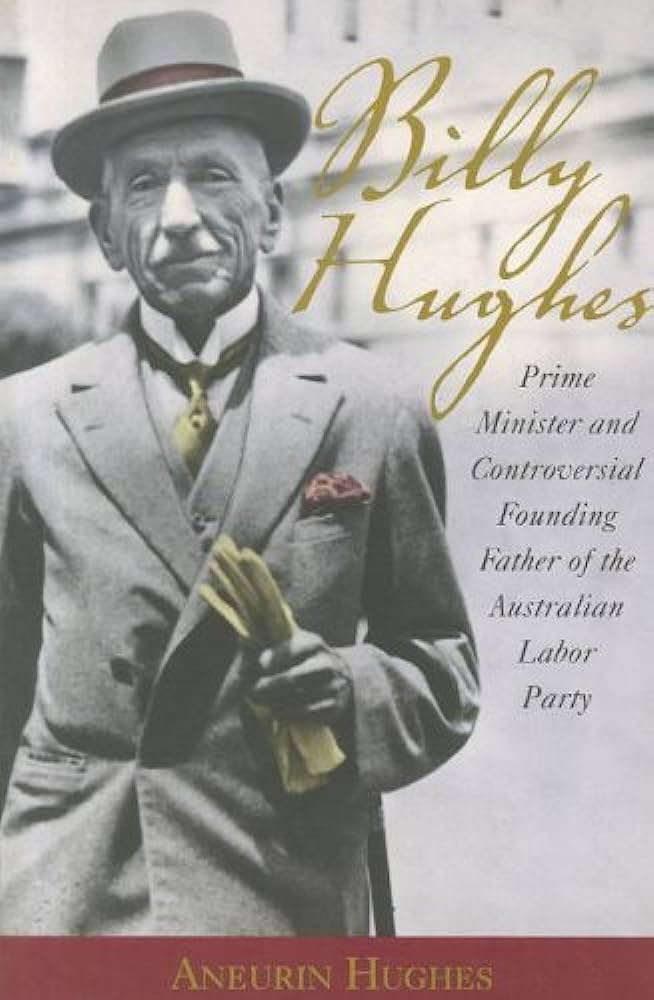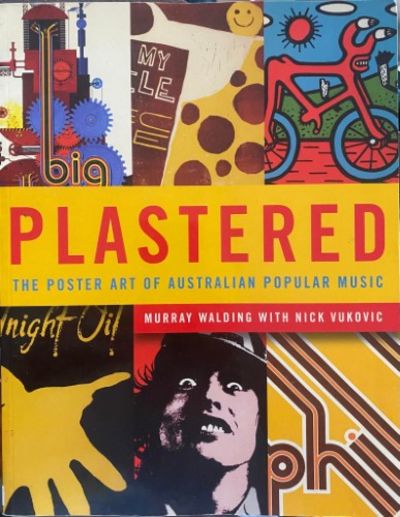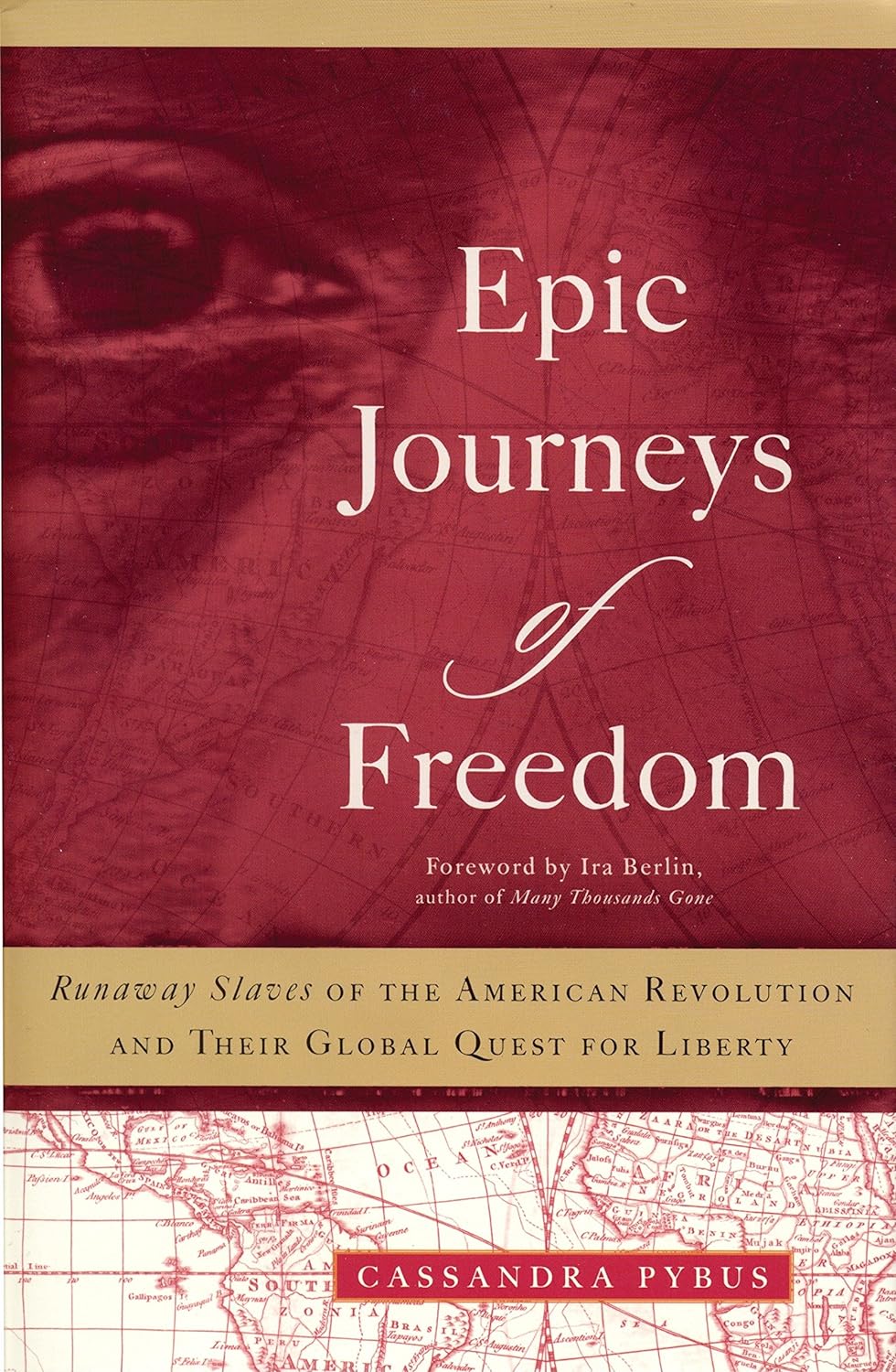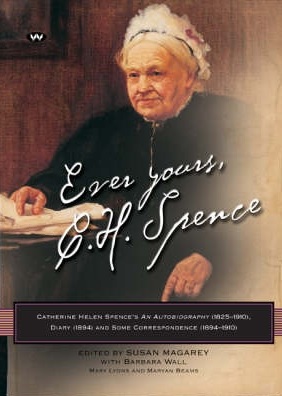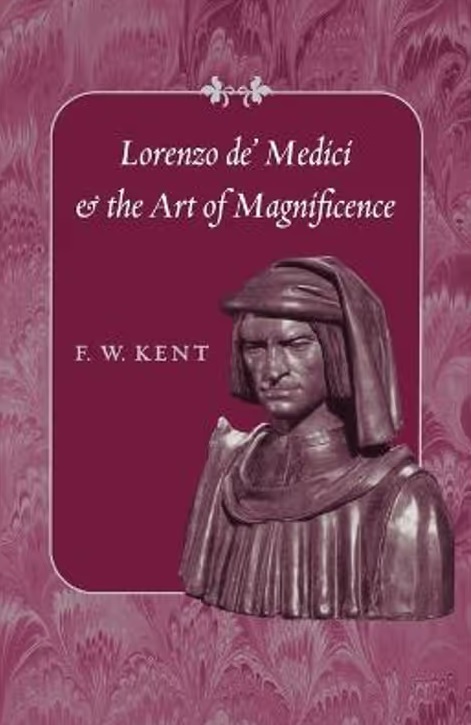History
Bad Faith: A Forgotten History of Family and Fatherland by Carmen Callil
In 1978 the French weekly L’Express published an interview that sent a shockwave through the French collective conscience. The subject was Louis Darquier de Pellepoix, the wartime Vichy government’s Commissioner for Jewish Affairs. Having escaped at the end of the war to the safe haven of Franco’s Spain, he was now an octogenarian, enjoying some prestige as the official translator of the Caudillo’s speeches. Darquier had been condemned to death in absentia by the Liberation courts, but never extradited. He was not the only Nazi collaborator to have escaped punishment, but what most profoundly perturbed the readers of L’Express was that his virulent anti-Semitism was still completely intact, as was his refusal to believe that the Shoah was anything other than a Jewish fabrication. In the late 1970s France was at the beginning of the long process of self-examination and self-remembering whereby it would seek to come to terms with one of its history’s darkest periods. For Charles de Gaulle, whose presence had dominated so much of the two decades after World War II, the Vichy government was an illegality, and its leaders traitors. After de Gaulle’s death in 1970 began the slow and painful process of acknowledgment that the experience and behaviour of the French during the Occupation was more complex than the Gaullian vision, and much more shameful.
... (read more)Tucker Track: The Curious History of Food in Australia by Warren Fahey
When my Scottish in-laws asked about traditional Australian Christmas fare, I barely felt confident to answer for my own family, let alone for the nation. I started putting the question to friends here: what, traditionally, is eaten on Christmas day at your place? The regular response was a look of perplexity. This was invariably followed by a story of change: we used to have turkey, but in recent years it’s been salmon in the Weber; when I was a child we had a roast, a pudding, all the works, but now we have chicken salad; my partner is Lebanese/Vietnamese/Polish, and I’ve adopted his family’s traditions. The one constant seems to be change, and no doubt this is a – possibly the – defining feature of ‘Australian cuisine’. In other countries, the word ‘traditionally’ does not induce such uncertainty.
... (read more)Divided Korea: Toward a culture of reconciliation by Roland Bleiker
‘The US scares North Korea.’ If you are George W. Bush or Dick Cheney, you may be satisfied with this statement by former US diplomat Donald Gregg. It might signify the success of American policy towards North Korea, a country you consider to be a dangerous ‘rogue state’ that is developing nuclear weapons and exporting missile technology, and that is led by a repressive totalitarian régime. The only way to deal with such governments, you believe, is through threats, deterrence and, if necessary, military action to degrade offensive military capabilities or even to remove them from power. But what if this brings us to the brink of disaster? In this timely and important book, Roland Bleiker exposes this schoolyard philosophy for what it is: a dangerous and simplistic recipe that has brought North-East Asia to the brink of war too many times in recent years. Ever since the North Koreans announced in 2002 that they were withdrawing from the Treaty on the Non-Proliferation of Nuclear Weapons (NPT) and were on the brink of developing a working nuclear capability other countries in the region have been justifiably alarmed.
... (read more)Much critical historical interest in Edward John Eyre has centred on the apparently radical contradictions in his life. Known variously as ‘the enlightened defender of Aboriginal rights in Australia, but also as the reviled “butcher of Jamaica” in England and the Caribbean’, Eyre’s notorious career began in the late 1830s and included exploration and colonial administration in Australia, New Zealand and the West Indies, reaching both its apex and nadir while he was governor of Jamaica during 1864–65. Historians have puzzled over how a man who displayed a marked respect for indigenous people during the period from 1839 to 1845, as an Australian explorer, Resident Magistrate and later Protector of Aborigines at Moorunde, could have acted in such a barbarous way as governor of Jamaica after riots broke out in 1865. There have been several biographies and numerous piecemeal studies of Eyre’s colonial career. In Edward Eyre: Race and colonial governance, Julie Evans expands past approaches, attending to the play of power between London and the colonies (amply canvassed earlier in relation to the Morant Bay Jamaica rebellion by Catherine Hall, and extended here), the contradictory constructions of ‘race’ in colonial contexts (derived in part from the postcolonial critiques of Patrick Wolfe) and the distinctly different colonial cultures in which Eyre worked. She aims to confound and refigure the ‘common correlations between race, resistance and repression in the colonies’.
... (read more)In 1936, West Australian MP Leslie Craig stated in parliament that the (then) current figure of Aboriginal ‘half-castes’ in Australia – approximately 4000 – would soon number 40,000 if something were not done to stem the tide of this growing problem. Seventy years later, in 2006, a federal member of parliament has suggested that Australia is in danger of ‘aborting itself out of existence’ and becoming ‘a Muslim nation in fifty years’ time’ – and this only a few months after the Cronulla race riots. It is clear that race-based fears are still prevalent in our predominantly white Australia. Henry Reynolds’s latest book, Nowhere People – like most of his books – is as much an analysis of our contemporary society as it is an historical examination of how international theories of race shaped Australia’s identity over the past 218 years.
... (read more)Billy Hughes: Prime Minister and controversial founding father of the Australian Labor Party by Aneurin Hughes
Major historical figures generally attract multiple biographies. Napoleon and Nelson have, reputedly, amassed more than 200 biographies each – with successive waves of interest reflecting the constant need for reinterpretation. But at some point we must strike a declining marginal utility as we tally the titles – biography as running soap opera appears a postmodern accoutrement. In Australia, we have not yet managed to produce a biography of each prime minister – then along comes another on the ‘Little Digger’ Billy Hughes (1862–1952), without doubt one of our most colourful political leaders and written-about subjects. If not 200 titles, then there is certainly a small bookshelf full of respectable studies and serious essays on him, not to mention his own books and the many cameo appearances he makes in political memoirs and other works of his generation. So, do we need another interpretation? Indeed, does this ‘short life’ of ‘King Billy’ offer a new interpretation? Why did Aneurin Hughes – his namesake but no relation, and more on that later – commit to this laborious project?
... (read more)Plastered: The poster art of Australian popular music by Murray Walding (with Nick Vukovic)
Plastered makes an ambitious claim for band posters ‘as barometers of cultural relevance [which] can offer real-time social commentary and political satire’. Although the book never quite substantiates this claim, it is a valuable work, not least because of its beautiful reproductions of band posters. Most of the posters derive primarily from the collection of Nick Vukovic, an inveterate collector. Vukovic is so keen to show off his collection that even posters of little artistic value, ‘designed to get bums off seats and nothing more’, are impeccably and inexplicably reproduced in the book.
... (read more)Epic Journeys of Freedom: Runaway slaves of the American revolution and their global quest for liberty by Cassandra Pybus
Until about twenty years ago, historians of colonial North America were writing about it as ‘this strange New World’. Whether because of distance or a native frontier, inflated (or skewed) visions, J. Hector St John de Crèvecoeur’s new man, the American, was thought to have been born on an unknown and therefore malleable physical and institutional landscape. Everything could, as it were, begin from scratch – and that’s the way the Americans wanted it. Today, historians have repositioned the colonies within the seventeenth – and eighteenth – century Atlantic World. In these studies, North American colonials simply lived English, Dutch and French lives overseas. It was not just that they replicated the home country’s customs and institutions in Philadelphia, Charleston or Montreal: that we’ve known. They used an available Atlantic World: black slaves ran to British ships on the Atlantic and served as sailors; New England merchants travelled to the Caribbean; Dutch New Netherlanders as assiduously carried on business with Amsterdam wholesalers as with retailers on Manhattan Island; British soldiers stationed on the African coast found themselves shipped to South Carolina.
... (read more)Ever Yours, C.H. Spence: Catherine Helen Spence’s an autobiography (1825–1910), diary (1894) and some correspondence (1894–1910) edited by Susan Magarey
As Nicholas Jose observed in the November 2005 issue of ABR, the face of South Australian novelist Catherine Spence, currently featured on our $5 note, circulates much more widely than any of her books. Like those of several other nineteenth-century Australian women writers, Spence’s novels were revived in the 1980s but are now once again out of print. So this new edition of her autobiography, extensively annotated and accompanied by letters and a diary never before published, is especially welcome.
... (read more)In October 2005, Monash University hosted a workshop on Australians in Italy at its Centre in the Palazzo Vaj in Prato. Australians in Italy were certainly visible in the week of the conference. Wall posters in Rome advertised the Macquarie Bank and an exhibition, Viaggio nella Provincia di Roma di una pittrice australiana, the paintings of the expatriate artist Janet Venn-Brown. In Florence, the invitation to the opening of an international exhibition of Women’s Art bore the image of Tracey Moffatt’s photograph Something More 1 (1989). The workshop in Prato included papers on artists, writers, returned migrants, the Catholic clergy – and a vignette on the best-known Australian in contemporary Italy, the supermodel Megan Gale. Also on the programme was the contribution of Australian scholars to Italian Renaissance studies. Now extending to three generations, their work is no longer subsumed under ‘British’, and references are to ‘American–British–Australian’ approaches and research. A member of the first generation, Bill Kent, through his own writing and his training of PhD students, is the crucial figure in the ‘piccola scuola australiana’ (‘piccola’ only when confronted with the North American Renaissance industry), just as he was in the establishment of the Monash Centre in Prato.
... (read more)
